Purposeful Paws
By mark wasicsko • October 18, 2024
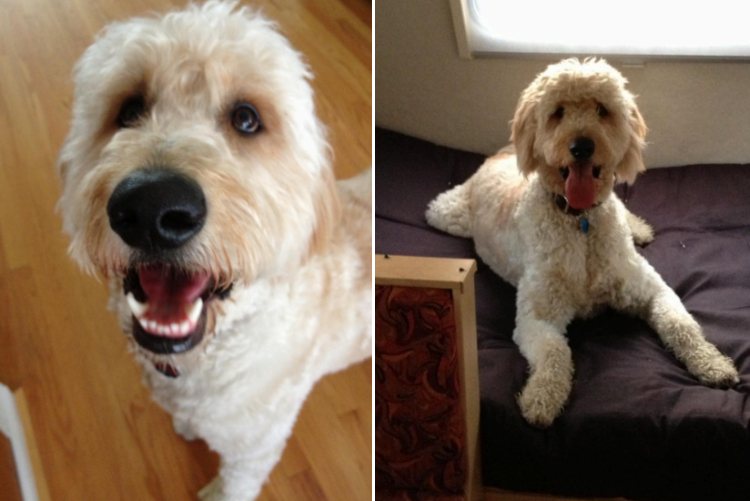
If you can start the day without caffeine or pep pills,
If you can be cheerful, ignoring aches and pains,
If you can resist complaining and boring people with your troubles, If you can eat the same food every day and be grateful for it,
If you can understand when loved ones are too busy to give you time, If you can overlook when people take things out on you when, through no fault of yours, something goes wrong,
If you can take criticism and blame without resentment,
If you can face the world without lies and deceit,
If you can conquer tension without medical help,
If you can relax without liquor,
If you can sleep without the aid of drugs,
If you can do all these things,
Then you are probably the family dog.
~ anonymous ~
Some moments in life bring full attention to what’s important—a birth, an anniversary, a joyful surprise, the formation or breakup of a relationship, or the passing of a loved one. They remind us of the universe’s irrefutable laws that all worldly happenings are impermanent (they arise, stay a while, and fade away) and that the only time we have is the present moment.
One such event was the recent passing of our dog, Tucker. He was a kind soul and a great mindfulness teacher.
The Dalai Lama was once asked if dogs had souls. He replied, “Any being who shows compassion indicates the presence of a soul and has the benefit of earning merit in its lifetime.” This is especially evident in “womb creatures” (e.g., mammals) who give live birth, provide tender care for their young, and have more complex brains.
All mammals, including humans, are biologically connected through the presence of a “mammalian brain” and the shared chemical bond of oxytocin, the “love hormone” stimulated by touch, cuddling, and kindness. These provide the biological mechanisms for attachments and also grief when the bond is broken.
Tucker was an extraordinary family member who frequently showed more human than dog characteristics. For example, he showed affection toward all beings, especially children and animals; he had a fantastic memory (once he learned the name of a person or object, he never forgot it); and he took particular delight in doing favors like fetching shoes, carrying packages, and tidying up toys, recycling, and laundry.
Tibetan monks believe unique, human-reminiscent dogs occasionally enter this world. As a sign of honor and respect, when the dogs passed away, they would cut off their tails in hopes that their special companions might be born tailless humans in the next lifetime. Tucker was one such dog. (We didn’t cut off his tail, though we have high hopes for him in his next life.)
When the pandemic hit, our lives and careers were spun on their axis. For many of us, work went virtual, and my family moved to a farm in the country where social distancing was less a safety strategy and more a way of life. So in a way, COVID removed many excuses (and distractions) for not sitting and thinking about what’s really important.
This brings us back to Tucker.
Most mornings, we take our dogs for a walk along country roads. Tucker, a nearly 100-pound golden doodle, had a habit of strolling along for a while then coming to a complete, utter, I-couldn’t-budge-him-if-I-tried full stop. (And believe me, I tried!) At first, I felt annoyed. “What are you doing?” I’d ask him. “Come on! Let’s move!”
In my mind, I had places to go, things to do, and more than a few tasks to complete. I couldn’t just stand there because Tucker wanted to take a few seconds…five minutes…ten minutes…to simply pause and take in his surroundings.
Until one day, I wondered: “Why not?”
Before COVID, my go-to strategy for working and living was juggling as many tasks as could be squeezed into any allotted time. I saw myself as a master multitasker and got what I believed was genuine satisfaction by checking things off my lengthy to-do list.
Staying so busy, I never had time to think big thoughts or ponder important questions, let alone appreciate all the blessings surrounding me. My addiction to a hectic life of accomplishing things let me avoid going inward and facing myself. I now see I was more of a robotic “human doing” than an authentic “human being.”
Ever been there?
Have you ever gotten into your car to head home from work or school, suddenly realizing you’re already pulling into your driveway?
When this happens, we appreciate that our body can sometimes have a “mind of its own.” Our habits take over when our mind goes elsewhere. So, regarding an evening commute, giving ourself over to a habit and missing the specifics of the trip may not seem especially detrimental.
Have you walked into the big-box store to discover beach umbrellas, Halloween costumes, or Christmas decorations and thought, “How is it that time already? Where did the year go?”
If so…well, it may be time to check out how often we check out. What might we have missed when life becomes a fog punctuated by brief periods of consciousness? One moment, we’re a student, then – in what seems like the blink of an eye – we’ve graduated, established a career, and started a family. Another blink, and we’re getting an award for ten years of service. Blink. The kids are in school. Blink. “The kids” are off to college. Blink. “The kids” have kids of their own. Blink, we are retired.
One day, we can wake up, look into the mirror, and wonder who that old person is. Hours, days, and years can fly by, leaving us wondering where they’ve gone.
Our “amnesia” is partly the result of hurry sickness. Symptoms include juggling so many things that we lose track, forgetting important dates, jumping checkout lines at the grocery store because another seems shorter, or switching lanes in a traffic jam to one that’s moving one mph faster. Many of us will go entire careers, if not our lifetime, with this affliction. Fortunately, there are antidotes, but they often come disguised.
For many of us who grew up before the technology-permeated age of constant busyness, free time included a lot of “doing nothing.” Kids could just go out and play, hang out around the neighborhood, play games, make up adventures, explore, flip through comic books or magazines (or occasionally read a whole book!), and, sometimes, just sit and ponder. There was space and freedom (and an ample helping of boredom) that provided an opportunity to become comfortable with just being by ourself. We may not have been able to put it into words, but we could appreciate being in the moment for its own sake. We found bliss in play and the idea that “We have nothing to do and nowhere to go!”
As cultural institutions - family, friends, school, work, church - exerted ever-increasing pressure to conform, we were brainwashed into believing time is like a rocket speeding ever faster. If we didn’t “keep pace,” we would “miss out.” This notion penetrated every part of us, causing anxiety and worry. We learned to fear “wasting” time and being unproductive. It even crawled into our unconscious minds, giving rise to dreams of being late for an otherwise unmemorable this-or-that or unprepared for a random school or work something-or-other. Finally, we succumbed to the spell, locking our childhood self behind an iron gate. A doppelgänger took its place, a specter somehow simultaneously obsessed with ruminating on the past and scheming about ways to control the future.
We need to reconnect with the idea, common amongst indigenous peoples (and children), that tomorrow is another day. The sun will rise, the same as it did this morning, and the seasons will repeat themselves, cycle for cycle.
Occasionally, something snaps us to attention, clearing the fog and forcing us into the present moment. One such event was Tucker’s passing and reflection on his purposeful pauses.
I was lucky to have Tucker as my teacher through his life and by his passing.
Many people require monumental occurrences to wake them from their slumber and free them from imprisonment. Unfortunately, all too often, these awakening events take the form of traumas or tragedies, situations that lend painful significance to the lyric “you don’t know what you got till it’s gone.”
Please don’t despair, though. If you’re reading this, there’s a good chance you’re already open to reconnecting with your inner child, your bliss. You might be willing to borrow a page from Tucker’s playbook and dedicate a few minutes of the 1,440 you have today to stopping and looking around.
Here’s how:
This week, spend just 15 minutes each day practicing the “purposeful paws.” At random times throughout the day, use one of the prompts below. Start each pause by taking three deep slow breaths.
For 1 minute: Remember a loved one who brought you joy
For 2 minutes: Stop what you are doing and just look around
For 3 minutes: Find beauty in your surroundings
For 4 minutes: List our gifts/gratitudes
For 5 minutes: Do nothing with all your might
At the end of each day, check in with yourself. Ask: “How am I feeling?” Then, at the end of the week, reflect nonjudgmentally on any thoughts, insights, or takeaways that may have come from pausing and being in the moment.
Try These for Extra Credit*
*Well, not extra points or material benefits but something far better: more enjoyment of our precious moments, greater appreciation for our gifts and blessings, and increased bliss.
Our Tucker-Inspired List of Purposeful Paws
Stop, take a deep breath, and look around
Deliberately go to a long line in the store
Let other people cut in front
While stuck in traffic or sitting at a stop light, savor the moment
Check up on an old friend
When in a hurry, deliberately slow down, and know that everything important will be waiting when you arrive
Linger a bit longer with friends (and pets!)
Take a walk (“All truly great ideas are conceived while walking.” Nietzsche)
Sincerely ask someone how they are doing and just listen, say nothing.
Ask someone if we can do something for them to help make their day better.
Sit in the sun for a few minutes. No phone, no thoughts about school or work, just warmth and sun.
Notice smells—coffee, grass, a person or pet, etc.
Recall all the people who played a major role in your life for two minutes.
I know doing these things would make Tucker smile.
 Dogs Are Forced To Wear The Things They Steal — And It’s Hilarious
Dogs Are Forced To Wear The Things They Steal — And It’s Hilarious
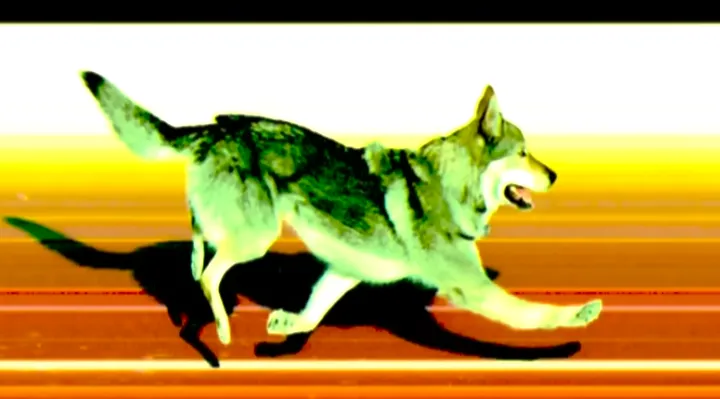 Meet Nazgul: The Dog Who Crashed An Olympic Ski Race And Nearly Won
Meet Nazgul: The Dog Who Crashed An Olympic Ski Race And Nearly Won
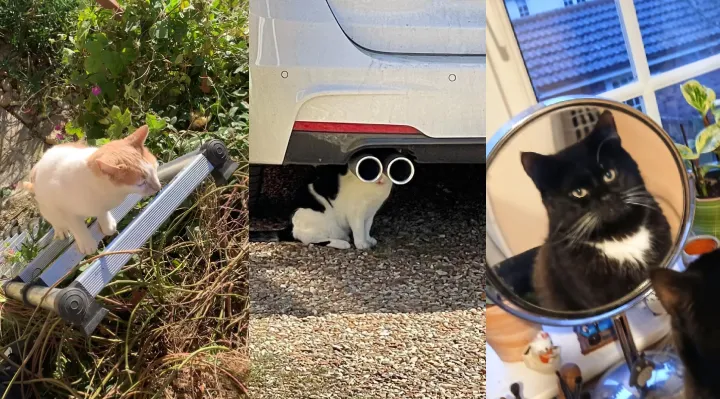 People Are Submitting Photos of Their Cats’ ‘Jobs’— And We Can’t Stop Laughing
People Are Submitting Photos of Their Cats’ ‘Jobs’— And We Can’t Stop Laughing
 She Was Feeling Low On Confidence, So Her Classmates Covered Her Desk In Sticky Notes
She Was Feeling Low On Confidence, So Her Classmates Covered Her Desk In Sticky Notes
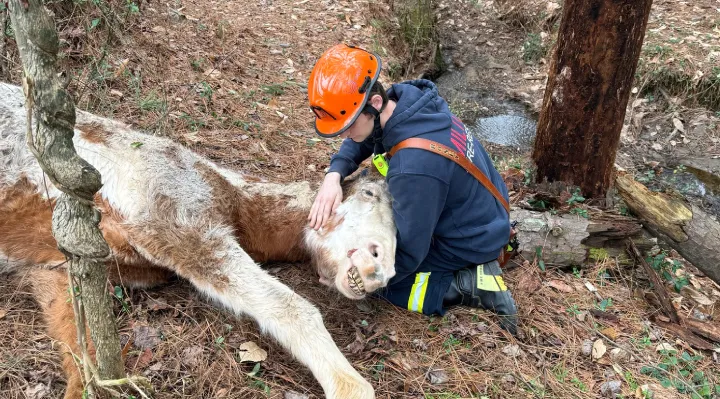 A Childhood Bond Reunited: Firefighter Saves The Horse That Taught Him To Ride
A Childhood Bond Reunited: Firefighter Saves The Horse That Taught Him To Ride
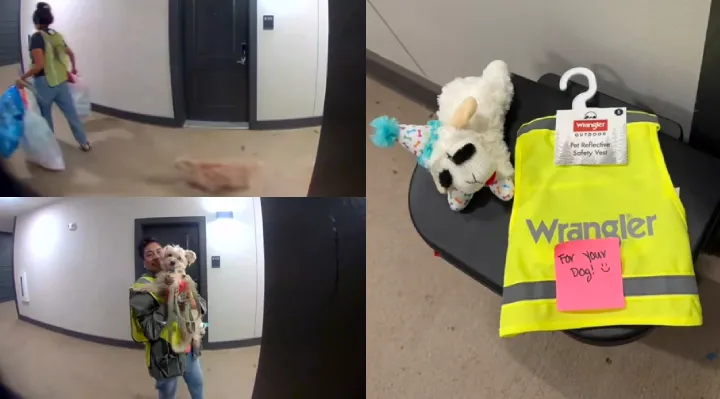 She Collects Trash 5 Days A Week With Her Dog — So A Resident Gifted Her Dog A Matching Vest
She Collects Trash 5 Days A Week With Her Dog — So A Resident Gifted Her Dog A Matching Vest
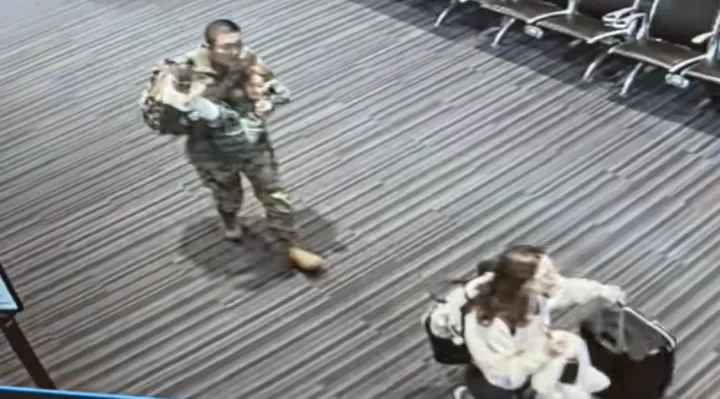 Mom Was About To Miss Her Flight, So A Stranger Picked Up Her Kid And Ran With Her
Mom Was About To Miss Her Flight, So A Stranger Picked Up Her Kid And Ran With Her
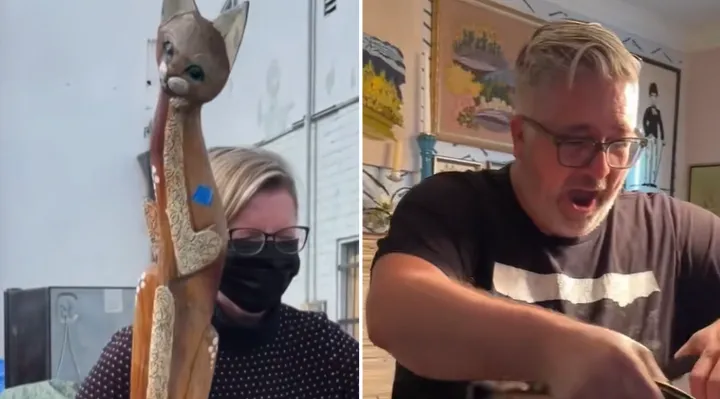 He Ordered A Doctor Bag — But The Size Has Him Laughing Uncontrollably
He Ordered A Doctor Bag — But The Size Has Him Laughing Uncontrollably
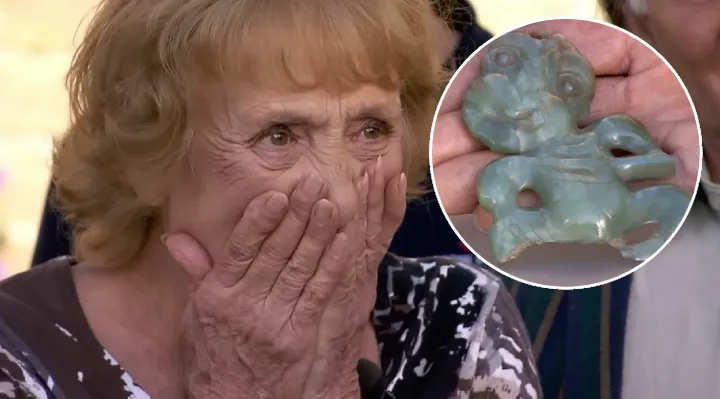 Woman Stunned By Valuation Of Rare Māori Jade Hei-Tiki Found In Her Garden
Woman Stunned By Valuation Of Rare Māori Jade Hei-Tiki Found In Her Garden
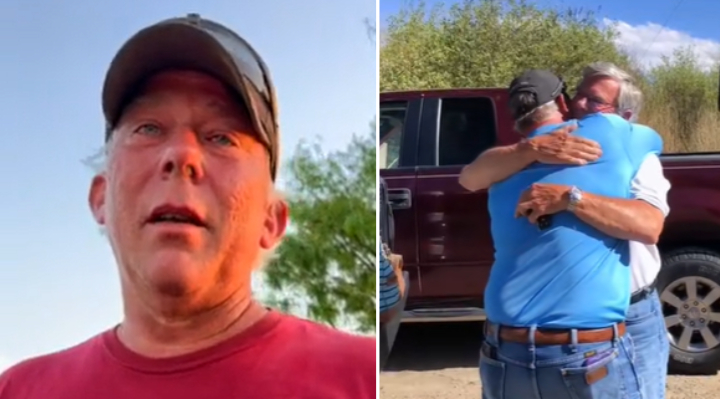 She Gave Her Dad The One Thing He’d Been Searching For His Whole Life
She Gave Her Dad The One Thing He’d Been Searching For His Whole Life
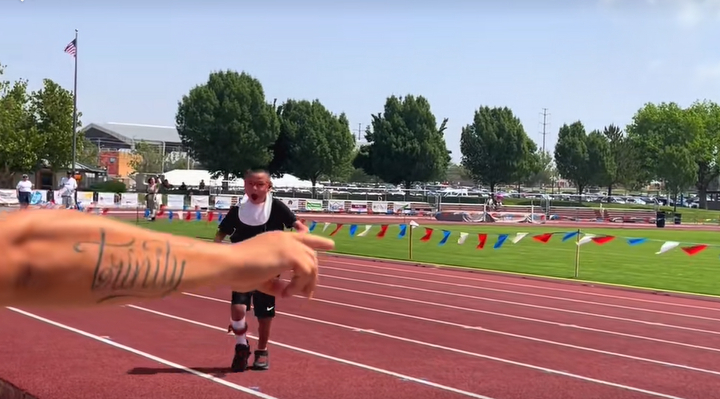 Son Stops Mid Race To Give His Mom A Kiss During The Special Olympics
Son Stops Mid Race To Give His Mom A Kiss During The Special Olympics
